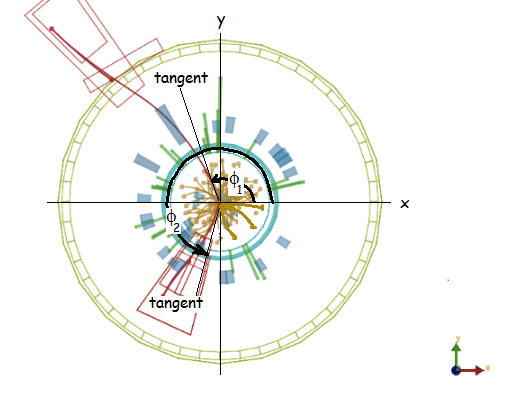CMS Data Analysis Virtual Workshop at UF 2020

Objectives
Participating teachers will:
- Apply classical physics principles to reduce or explain the observations in data investigations.
- Identify and describe ways that data are organized for determining any patterns that may exist in the data.
- Create, organize and interpret data plots; make claims based on evidence and provide explanations; identify data limitations.
- Develop a plan for taking students from their current level of data use to subsequent levels using activities and/or ideas from the workshop.
We will also provide opportunities to engage in critical dialogue among teaching colleagues about what they learn in the workshop.
Zoom link:
https://ufl.zoom.us/j/94217014329 (pass code is the Higgs boson mass to 3 digits in GeV units, see bottom of page or full Zoom details)
Preworkshop screencast of workshop overview and registration
Daily sign-in: https://forms.gle/uXXzb11LCSCNuuyp6.
Agenda
Wed 22 July
09:00 Welcome & Introductions (Ken)
- Zoom sign-in and handshake
- Whip around: How are you doing??
- Norms: Based on STEP UP Poster?
- Registration
- QuarkNet Account Update
09:30 Discusson: Data Portfolio (Ken)
09:45 Level 0 Activity Prototype: Cloud Chamber (student) (teacher) (Ken)
10:15 CMS presentation (30' talk, 15' Q&A) (Darin)
10:45 Intro to homework (Jeremy)
11:00 Lunch Break
Homework: Level 1 Activity Rolling with Rutherford online version
1:00 Homework discussion and analysis (Jeremy)
1:15 Level 0 Activity: Shuffling the Particle Deck (online version prototype) (Jeremy)
- Each group organizes cards in Google slides
- Look for trends in particle characteristics:
- mass
- lifetime
- year of discovery
- other
- Prepare to discuss what you have found
- More complete chart
2:00 Online teaching resources, initiation of a discussion
2:15 end of day
5:00 Zoom social hour
Thu 23 July
09:00 Check-in
09:15 Level 2 Data Activity:
- Calculate the Z Mass (use breakout rooms)
- Protractor for Chrome
10:15 Discussion
10:30 begin Intro to CMS Dimuon Data Notebook and Google Colab (initial instructions here)
11:00 Lunch Break
1:00 continue Intro to CMS Dimuon Data Notebook and Google Colab (initial instructions here)
Invariant mass slides
1:45 Plot a simulation of distribution of direction angles Φ of CMS muon tracks using Python (Colab notebook)
2:15 end of day
5:00 Zoom social hour
Homework:
Movie night! Watch these videos (at least the first) as an introduction to AI neural networks by 3blue1brown: video 1, video 2 (optional),

Fri 24 July
09:00 Check-in and homework discussion
09:15 AI introduction and AI notebook on CMS data
AI initititive at the University of Florida
slides (see also YouTube videos above)
Workbook1, Workbook2 on handwritten digit recostruction
11:00 Lunch Break
1:00 Implementation Plan
1:55 Teacher Survey
- If you completed the 2019 Teacher Survey, complete the 2020 Teacher Survey Update (~6 mins)
- If you did NOT complete the 2019 Teacher Survey, complete the 2020 Teacher Survey (~20 mins)
2:15 End of Workshop
p.s. The mass of the Higgs boson is 125 GeV
(hydrogen has a mass of 0.94 GeV, so the Higgs mass is as much as an element of ...)
